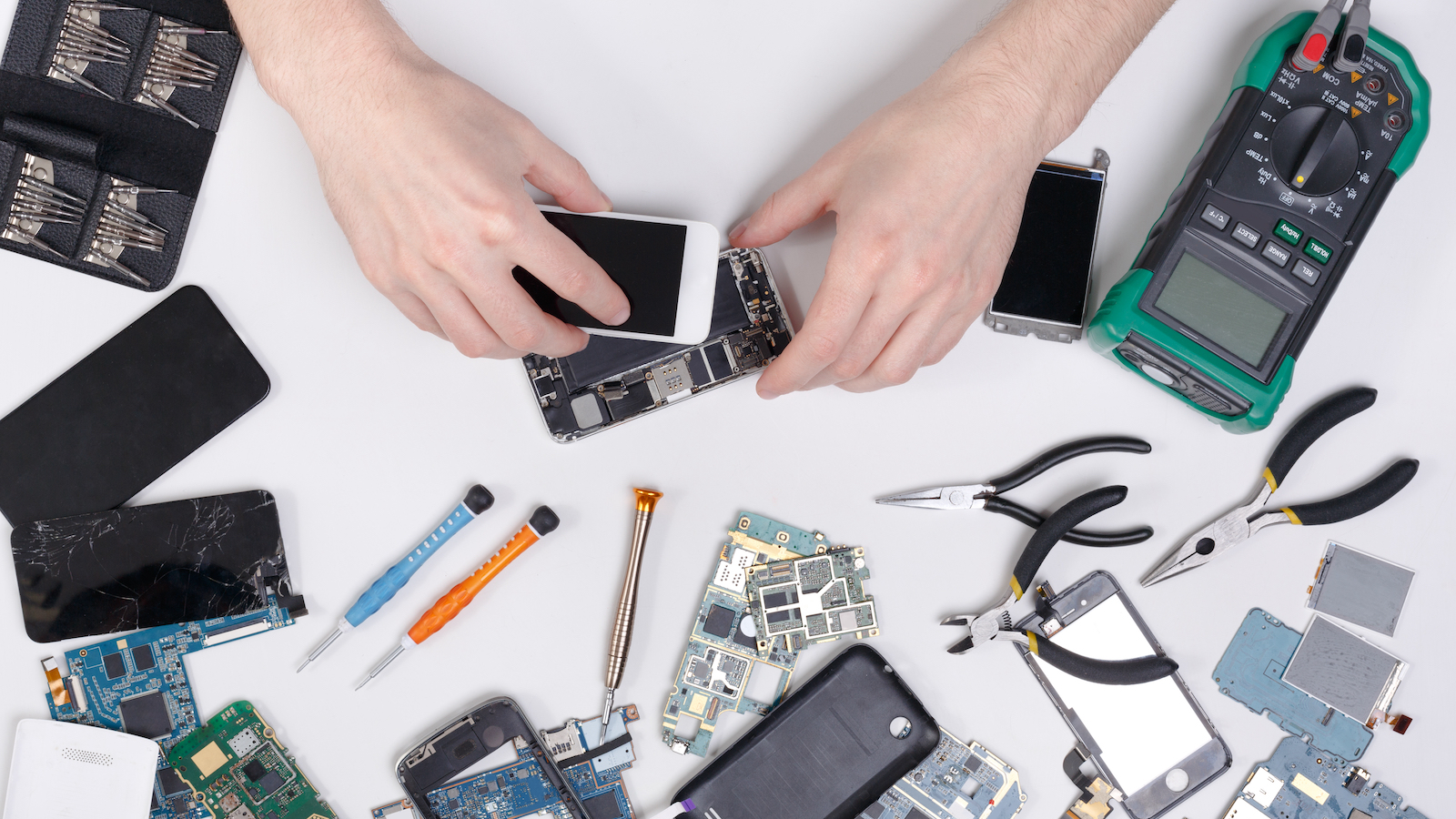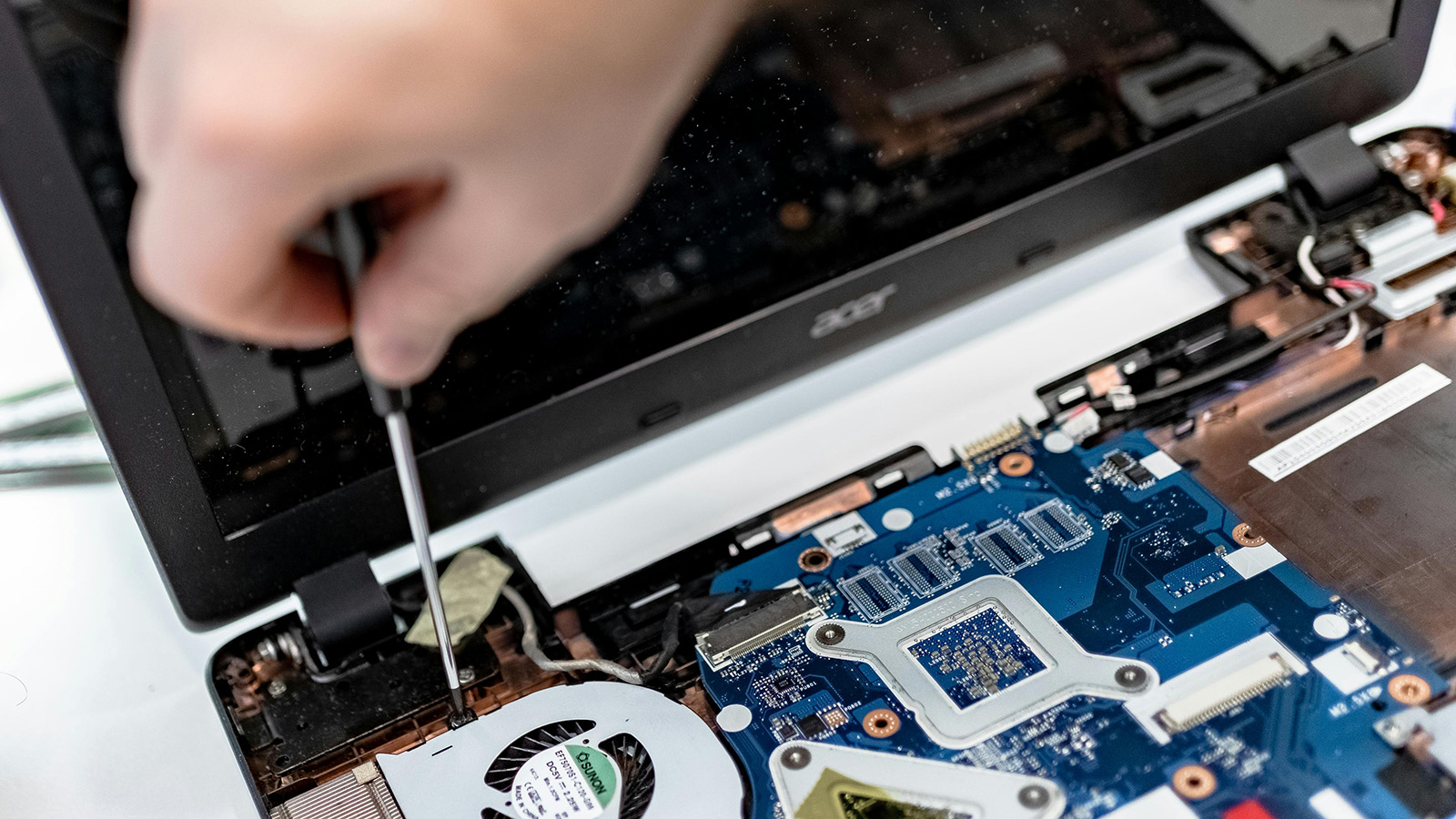
Right to Repair in 2022: What happened in New York, and our top accomplishments
Two states enact new repair laws, the Federal Trade Commission takes enforcement actions, medical device repair is defended, and more

People should be able to fix their stuff. That’s what is needed to cut electronic waste and pollution from our electronics. That’s what will save consumers money and restore our control of our gadgets rather than still having to rely on the manufacturer.
In 2022, we made more strides toward a world where product owners and repair shops can get what they need to fix devices. Manufacturers also dug in to protect their control of repair. Our 2022 record was punctuated by the enactment of a landmark bill in New York, but it would be a mistake to judge Right to Repair’s progress by this one milestone.
The Right to Repair campaign is winning on the most important front: with the public. Even as we advocates tangle with industry lobbyists who resist calls for greater repair access, we continue to make progress in states, at the federal level and in the marketplace. And while it can be discouraging that swarms of lobbyists have outsized influence over public policy, it’s also clear that, when it comes to fixing things, the lobbyists are losing.
N.Y. governor signs Right to Repair law, but dilutes it
After some tense negotiations and significant back and forth, New York Gov. Kathy Hochul signed the nation’s first electronic Right to Repair bill on Dec. 28, though the governor narrowed its scope in exchange for her support.
Before we talk about exactly what was changed and how, we have to recognize the importance of this step. Passing any law is a huge task. Passing a law with some $10 trillion worth of opponents is something I was told was impossible by the lobbyists who line up against us.
The original bill, passed overwhelmingly by state lawmakers in June, would have made New York the first state to require manufacturers of digital electronics such as phones, tablets and IT equipment to provide access to the parts, tools and information needed to repair equipment. Leading up to the governor’s final decision, we and our allies generated thousands of comments and phone calls in support. However, New York has a fairly unique process of “chapter amendments,” by which the governor can negotiate changes to a bill in exchange for her signature. Despite the Legislature passing the bill with a veto-proof majority, the governor’s suggested changes came so late in the year that there wasn’t much opportunity to override them.
The law now excludes any “product sold under a specific business-to-government or business-to-business contract … not otherwise offered for sale directly by a retail seller,” and now only applies to products made after July 1, 2023. Such changes could limit the benefits for school computers and most products currently in use. We opposed several other changes, so we’re looking forward to opportunities to strengthen the enforcement and close loopholes going forward.
Meanwhile, the lead opposition lobbying group, TechNet, has praised the changes by the governor. “…TechNet’s members greatly appreciate the significant strides made by the administration to address the most critical consumer protection and operational issues in the legislation as passed,” Chris Gilrein, TechNet’s executive director for Massachusetts and the Northeast is quoted as saying in the Albany Times Union.
While it’s far from perfect, we still finally have a law on the books, and a chance to build upon it. Plus, we have a lot of other wins to celebrate. We weren’t relying on New York alone to solve our electronic waste problems, and while New York has moved us forward, we have many other avenues for positive change.
Other top highlights from 2022:
- Colorado wheelchair users have a new Right to Repair. A new law signed last June, which took effect on Sunday, Jan 1, gives people who use wheelchairs access to the parts, tools and diagnostics they need to fix their wheelchairs when they break. Our report, “Stranded” helped make the case that these reforms are vital.
- Right to repair made more progress in states, passing one chamber in each of the Massachusetts, Minnesota and Rhode Island state legislatures. Year after year, we are seeing bills go farther as opposition arguments fall apart under scrutiny.
- Congress held multiple Right to Repair hearings. Congress held hearings before its Small Business and Rules committees (I testified at the latter), a result of growing interest in Right to Repair and support from both sides of the aisle.
- We’ve put Deere in the headlights with new research and a formal complaint. In our most recent report on farm Right to Repair issues, “Deere in the Headlights II,” my colleague Kevin O’Reilly takes a deep dive into how dealership consolidation makes the problem of repair restrictions on farm equipment worse. This data was an important part of a formal complaint against John Deere we filed with the Federal Trade Commission (FTC) on March 3, 2022.
- Microsoft, Apple, Samsung, Google are all moving ahead with repair programs. While some of these new repair programs have issues, it’s clear that many manufacturers are scrambling to get ahead of Right to Repair reforms moving ahead around the globe.
- We held the line against a bill to undermine medical device repair. Along with leaders from 253 hospitals, 11 independent service organizations and three biomedical professional societies, PIRG was able to help stall a manufacturer-backed amendment that would have gutted medical device repair competition from a must-pass piece of legislation.
- The FTC goes after manufacturers, targets appliance repair, and takes more action. In June, the FTC announced new enforcement actions against Harley-Davidson and Westinghouse for “illegally restricting customers’ right to repair.” Soon after, the agency announced a case against grill-maker Weber. More recently, the agency has requested public comments about whether to add Right to Repair rules to the Energy Guide program for appliances.
Topics
Authors
Nathan Proctor
Senior Director, Campaign for the Right to Repair, PIRG
Nathan leads U.S. PIRG’s Right to Repair campaign, working to pass legislation that will prevent companies from blocking consumers’ ability to fix their own electronics. Nathan lives in Arlington, Massachusetts, with his wife and two children.
Find Out More

6 surprising facts from the UN’s 2024 electronic waste report

Apple AirPods are designed to die: Here’s what you should know

Best laptops of 2024: The most repairable laptops and why it matters

